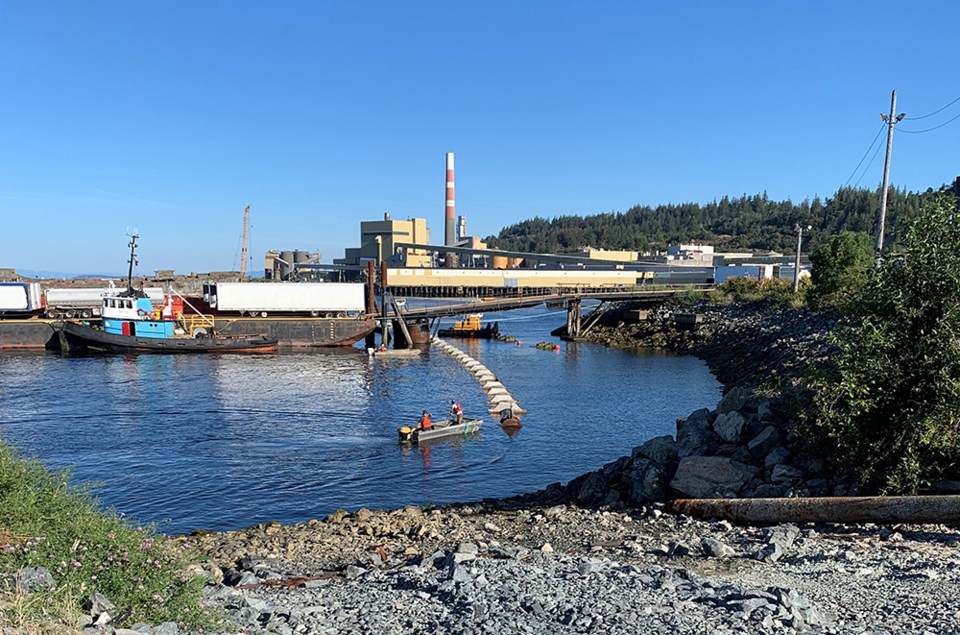City of Powell River councillors have instructed staff to prepare amendments to two sewer-related bylaws.
At the September 12 committee of the whole meeting, chief financial officer Mallory Denniston highlighted two proposals for adjustments to be made for sewer parcel tax rates, which govern sewer collection parcel taxes and sewer treatment/disposal parcel taxes. She said she was seeking direction on how to proceed with rates.
“Parcel taxes are taxes that are charged on each parcel of property,” said Denniston. “They are based on the number of feet, called frontage. We establish a rate and we apply it to the number of feet to establish the tax.”
In a report to council, Denniston stated that there is a 60-foot frontage minimum and a 120-foot maximum.
“The reason we have these parcel taxes established is because the sewer infrastructure is roughly one-third of our total capital cost,” said Denniston. “It’s a prudent way to ensure we have enough funding available.”
Denniston said the consolidated wastewater treatment plant is the largest capital project in the city’s history and so it is a good time to discuss the parcel taxes.
She said the parcel tax rate for 2024 has been examined and if it is not changed, the city will have to collect $500,000 for sewer capital costs in property taxes. She said it’s a policy choice councillors can make to use a combination of parcel tax and property taxes for capital costs.
Denniston said the first option is to maintain the status quo and apply a two per cent increase each year to 2027 to establish a new rate schedule. She said the second option would have the parcel tax rates fully cover the capital costs of that service.
“If the city wanted to do that we would need to increase the parcel taxes by 18 per cent in 2024,” said Denniston. “What that would do is fully collect the capital cost of the sewer. We would have more revenue from parcel taxes and less revenue from property taxes.
“Option one and option two do not change the total amount of money the city will collect. We will collect about $3 million with both these options, but there is a real important implication of these options.”
Denniston said the first option collects parcel taxes and property taxes for sewer capital costs, and properties with an assessment of $386,000 would pay $469 between property and parcel taxes. Under option two it would be $517 for parcel taxes because under that option, they are not paying through property taxes. She said a business property at $632,000, under option one, would pay $663 to sewer capital costs, compared to $517 under the second option. According to Denniston, all properties would pay $517 under option two, while in option one, lower taxed properties would pay less and higher taxed properties would pay more. She said property tax and parcel tax is more advantageous for people who have lower value homes and are in lower tax rate classes.
Councillor Trina Isakson said she wanted to move the first option, that the status quo be maintained, and $500,000 be collected through property taxes.
“I default to option one for two reasons,” said Isakson. “One is related to shock to the tax system and the second is I generally prefer taxes to go up on higher value homes. Option one maintains that.”
The committee voted that staff be directed to prepare amendments to the sewer collector bylaw and sewer treatment and disposal bylaw, which will feature frontage rates based on current levels for 2024, with two per cent raises from 2025 to 2027.
Join the Peak's email list for the top headlines right in your inbox Monday to Friday.



